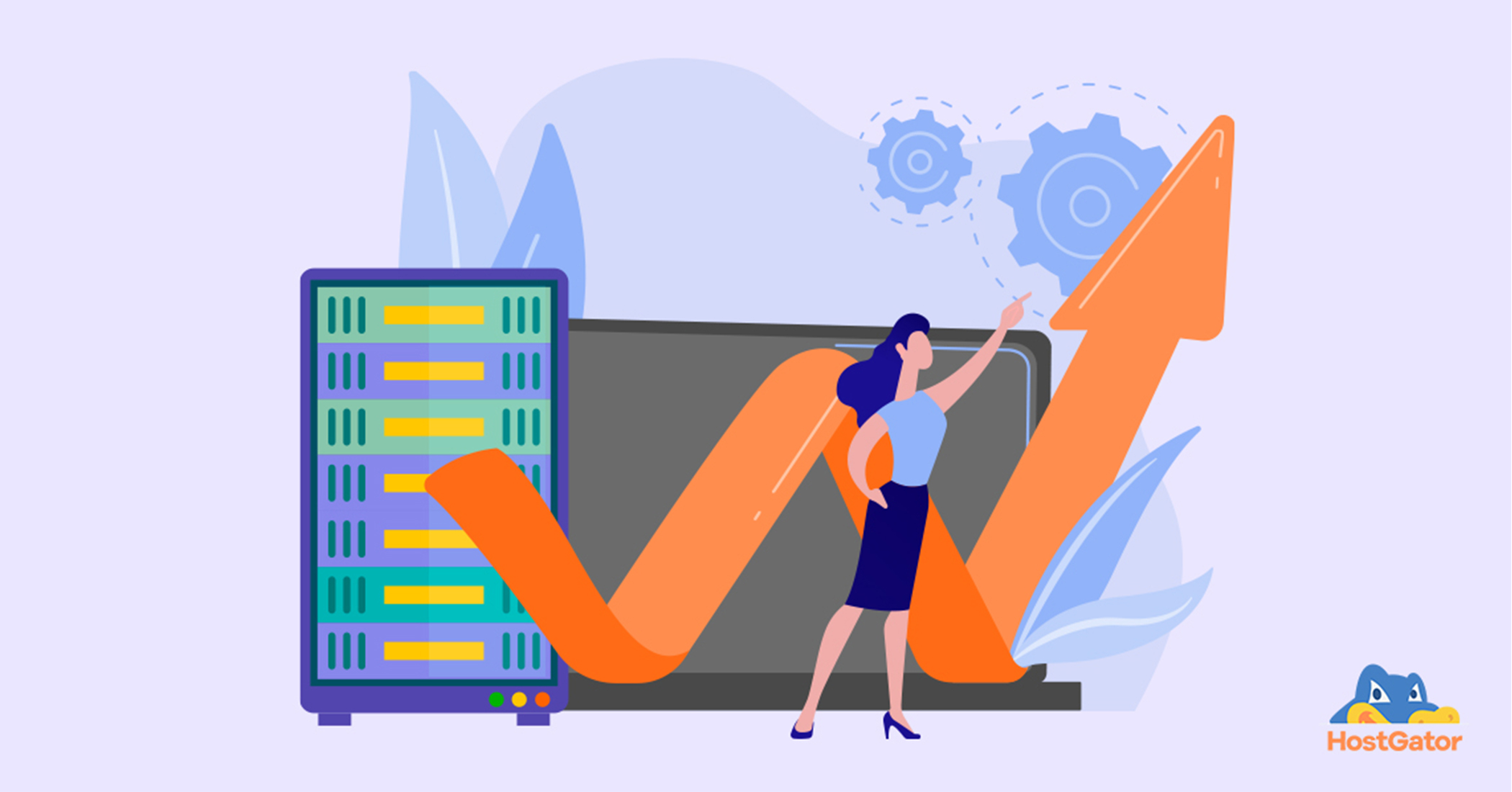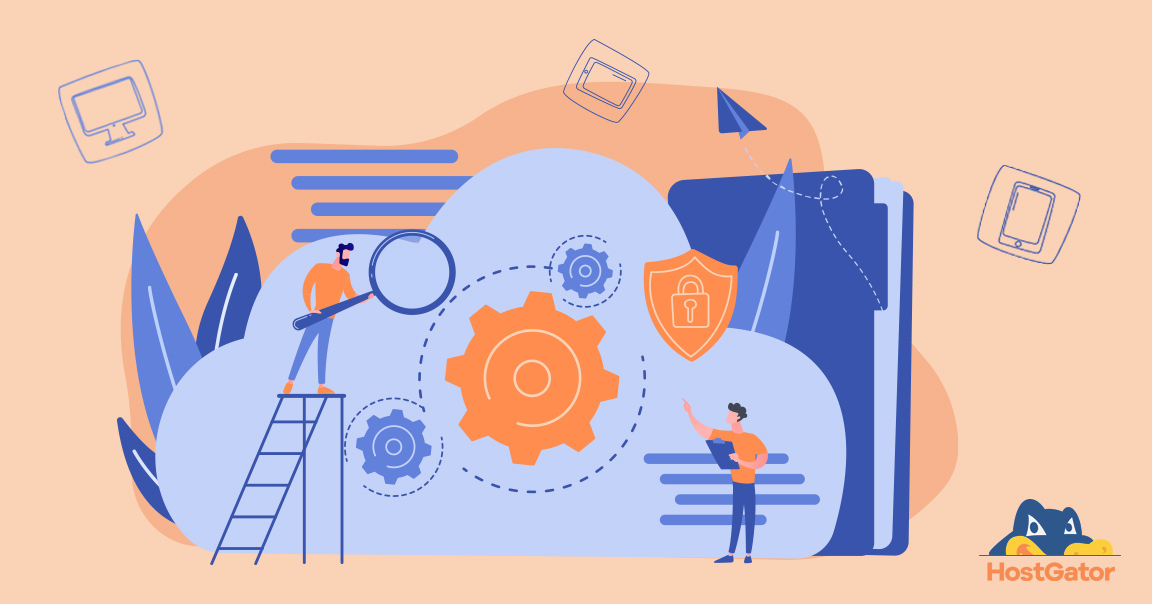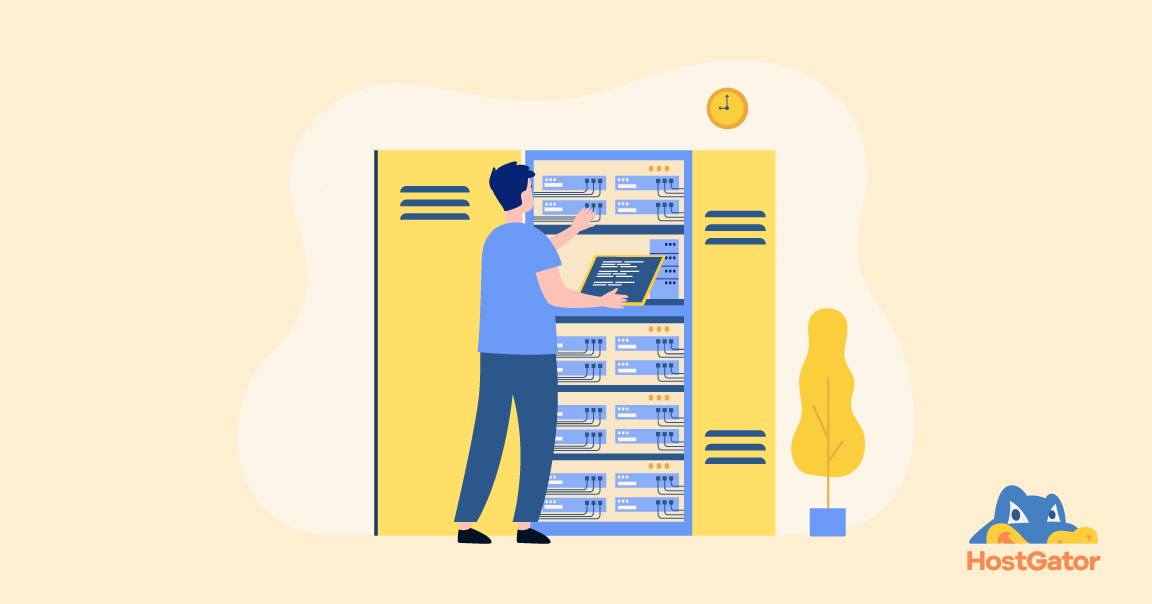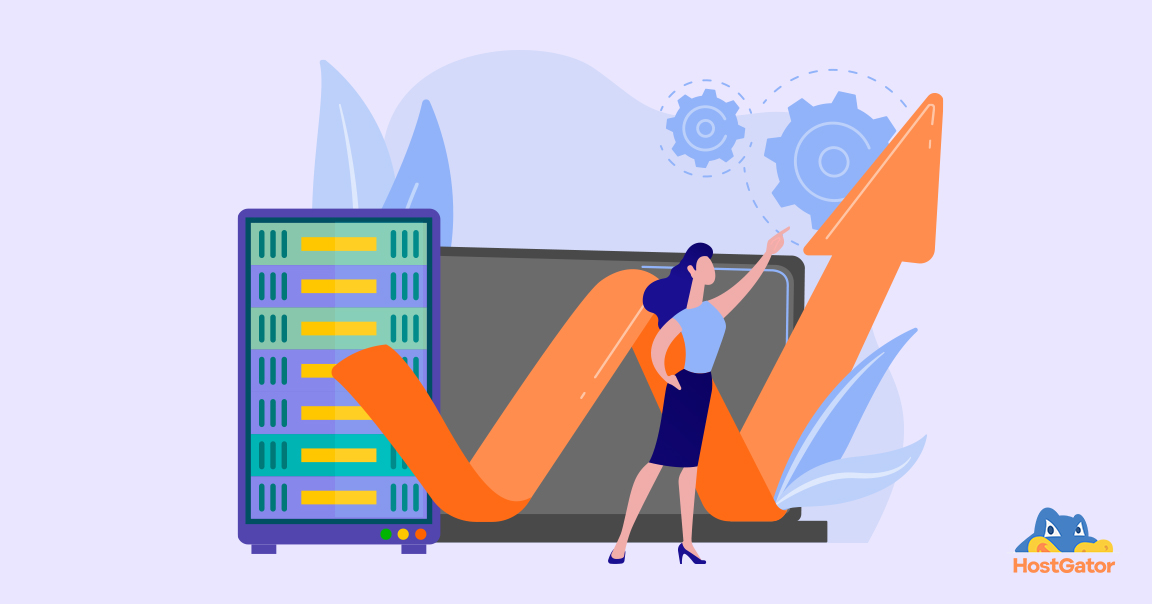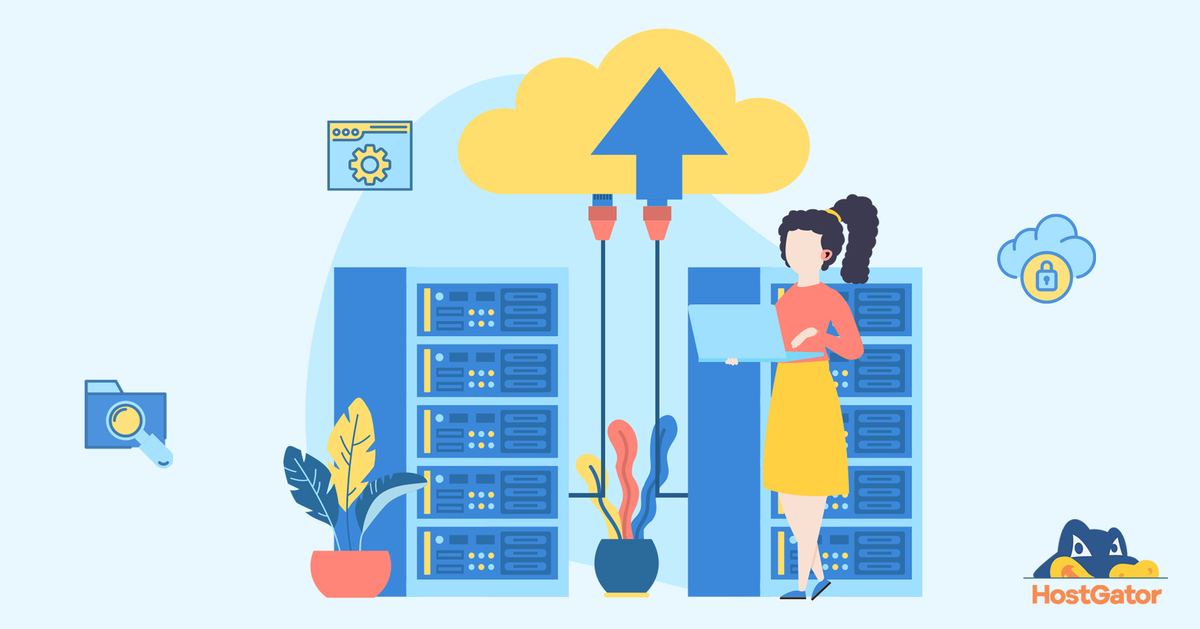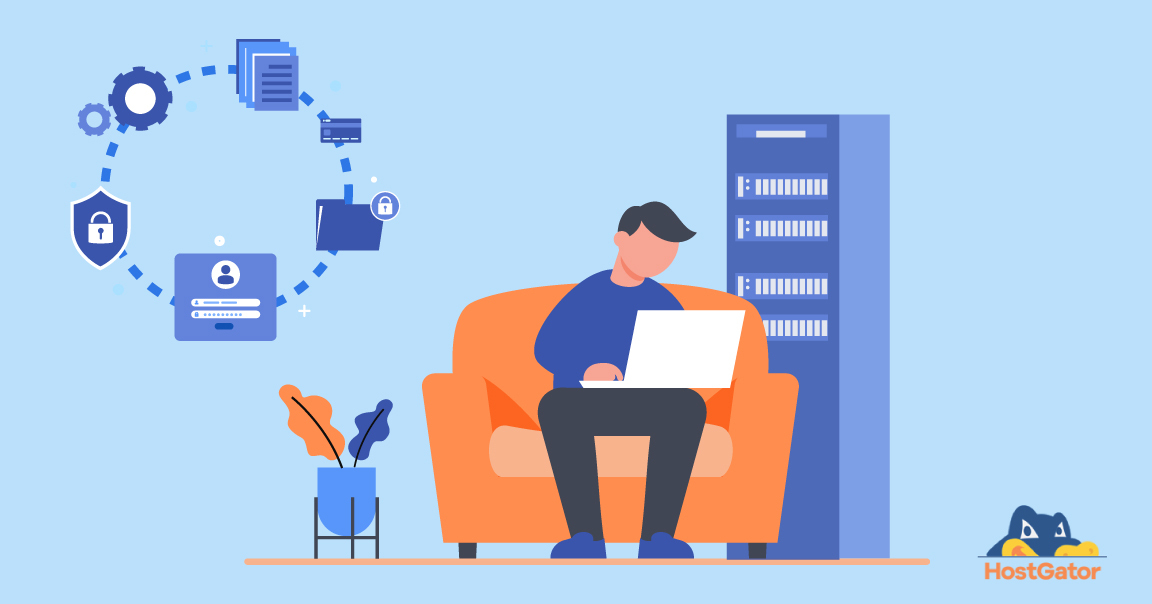Dedicated Server Hosting is the most powerful, customizable and secure hosting solution, which offers a high level of server control. However, regardless of the inherent benefits of Dedicated Servers, they need to be set up correctly and optimized well to ensure good performance.
In this article, we will guide you through setting up a Dedicated Server for optimum performance.
What is Dedicated Server Hosting?
A Dedicated Server is a hosting server that houses only one user. If you buy Dedicated Hosting, you are the sole tenant of the server and have complete control over all the server resources, such as disk space, RAM, CPU, bandwidth, etc.
Apart from hosting, Dedicated Servers are also widely used for gaming, mining cryptocurrencies, processing huge volumes of data, etc., due to the control, performance, power and privacy they offer. No matter your usage, it is crucial to set up your server correctly for good Dedicated Server performance.
Dedicated Server Setup For Optimum Performance
What does setting up a Dedicated Server entail? Well, a Dedicated Server is a machine. It needs to be set up in a way that suits your specific requirements. Dedicated Server setup involves tweaking critical server features, as listed below so that you enjoy the best server performance and speed.
So, does that mean everyone needs to set up their Dedicated Server when they buy a Dedicated Server Hosting plan? The answer is NO! When you buy a Dedicated Hosting plan from reliable providers, they ensure that the basics are set for you beforehand. You may need to tweak the server after prolonged usage.
Alternatively, you can buy a Managed Dedicated Server plan where all the server maintenance, setup, updates, security, etc. is looked after by the hosting provider. This is a great option for someone who is not technologically savvy or does not have the time for routine server management.
But, if you do wish to set up your server to your individual preferences, you can use the full root access available. All Dedicated Servers come with complete access to the server, known as root access in Linux Dedicated Servers and administrative access in Windows Servers. This access allows you to tweak the server, including installing/uninstalling software and applications, strengthen the security protocols, install security patches, and much more!
Let us see how you can set up your Dedicated Server for the best performance:
-
Remove all unused scripts
A Dedicated Server, at least when used for hosting a website, usually has a lot of pre-installed applications. It’s one way for hosting companies to entice users to opt for a Dedicated Hosting plan, and most of these applications are very useful too. These applications may be themes, plugins, some popular server management tools, web builder tools, security applications and so on.
You might find a few that are very useful for your particular use case. However, you will not have any use for the majority of the pre-installed applications. All of these irrelevant applications need to go.
Any application that’s on your server is using server resources. So, delete all the applications that you won’t use. Additionally, disable unused settings, i.e. if any particular setting is using up your server space and resources, disable it if it is no longer in use. Once you’ve removed all the dead weight, you’ll see gains in performance.
-
Optimise JavaScript delivery
When someone accesses your website through a browser, your server sends over a ton of information to the browser. This information is then processed by that browser and displayed on the screen for your viewer. There may be a few additional steps in some cases, but this is typically how it works.
One of the pieces of information that are sent by the server is called the JavaScript file. By default, a website simply will not load until this JavaScript file has been read. The phenomenon is called Javascript Render Blocking, and it affects loading speeds immensely.
When you have a Dedicated Server at hand, however, you can mitigate this problem. There are a whole bunch of easy to follow guides that you can find online. In essence, you will change a few settings that will allow the browser to load the website data first and the JavaScript file in the end. This can significantly boost loading times for your website.
Additionally, every now and then, take a look at your JavaScript code. One of the best ways to increase website speed and server speed is by using clean, simple, optimised code. If you see that there are changes that can be made, it’s crucial that you make those changes.
-
Change the priority setting
This is perhaps one of the most valuable changes that you can make to your Dedicated Server. By default, when you’re allocated a server, the priority setting of the server is set to ‘Normal’.
To increase the speed of your website, you can change this to ‘High Priority’. Basically, this will give you the freedom to control the order in which your server performs a few specific tasks and for how long it persists with a certain task.
Depending on your website content, the amount of media on your website, and your general website configuration, the order that suits you best will vary. So, feel free to change things up a bit and see what works best for you.
-
Use HTTP/2
When you get a Dedicated Server of your own, they’re usually configured to a setting called HTTP/1. However, that configuration has been outdated for a while now. Unfortunately, most people don’t seem to know about this and continue to use it with the default setting.
HTTP/2 is a newer file transfer protocol that enables file transfer at great speeds. The only thing to note here is that in order to use HTTP/2, you should have an SSL certificate installed. SSL certificates are digital certificates that help encrypt the connection between your server and the user’s browser. Additionally, it helps to authenticate the identity of the website.
You can still switch to HTTP/2 without an SSL certificate, but that will result in no changes because security protocols are a requirement for HTTP/2. In any case, having an SSL certification is great for website security and customer trust. So, it’s something that you should install irrespective of whether you want to switch to HTTP/2.
-
Use a reverse proxy
Let’s say a user requests a file from your server. Usually, your server will fetch all relevant scripts that are on your disk to send that file. Once the scripts have been fetched, they are executed, data is filled, and finally, the server assembles the main HTML file.
For each file requested, the server has to go through this complete process. So, what happens if three people requested the same file within a short span? The server does all these tasks three times.
As you can see, this is time consuming, inefficient, and leads to slower performance. This is where the HTTP reverse proxy comes into the picture. A reverse proxy sits between the users and your server. Whenever the same file is requested within a short time, it serves these files right from memory, rather than asking the server to perform these tasks repeatedly. Using a reverse proxy can improve performance and speed significantly.
-
Enable caching
Caching isn’t limited to Dedicated Servers. In fact, no write up on server optimisation is complete without mentioning caching because that’s how much of an impact it can have on speed.
Enabling caching basically allows a browser to locally store vital data about a website when that website is accessed for the first time. Whenever the browser is accessed after this, a lot of website data is loaded by the browser automatically, and very little information needs to be sent out. Caching can have a drastic effect on your website speed, and it’s something that you should definitely enable.
Conclusion
Dedicated Servers are great if you want high-performance solutions to a computing task. Dedicated Hosting powers most of the biggest and most viewed websites in the world. The combination of an abundance of resources and the freedom to customize makes Dedicated Hosting an obvious choice for these high traffic websites.
HostGator India offers high-performance Dedicated Servers with full root access and Solid State Drive (SSD) Storage. Get quick server provisioning, free WHM panel, server administration panel, DDoS Protection and 24×7 award-winning expert support.
For more information, get in touch with us today!

